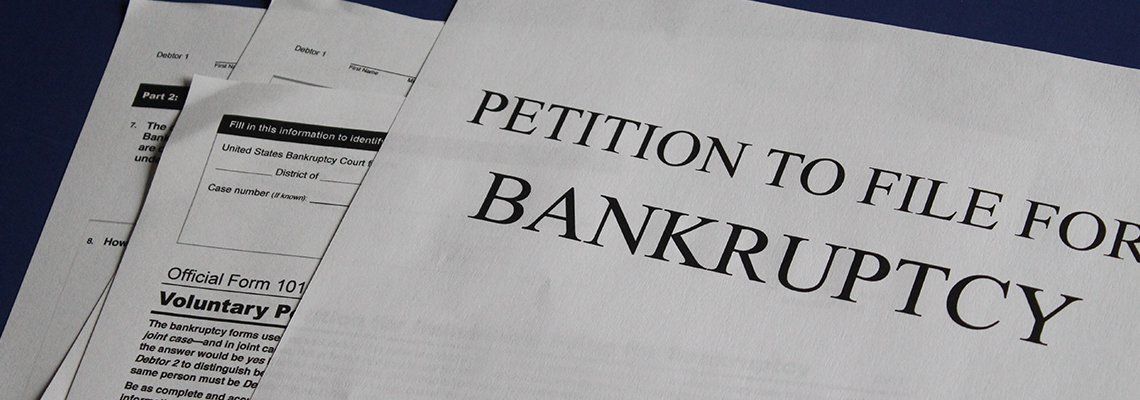CHAPTER 7 BANKRUPTCY: THE MOST AFFORDABLE BANKRUPTCY OPTION

The financial curveballs of life can sideline you from paying your bills, debts, or meeting your needs. When experiencing financial hardship, filing for bankruptcy may be the best for a fresh start. In Kansas, Chapter 7 is often the most affordable bankruptcy option. The American Bankruptcy Institute reports that about 6,839 bankruptcy cases were filed in Kansas in 2019. Of these cases, 3,722 (54%) were filed under Chapter 7.
If you are considering filing bankruptcy, don't go through it alone. I’m available to discuss your unique situation and offer you experienced legal guidance and advocacy. A one-on-one consultation with an experienced Kansas bankruptcy attorney can put you on the path towards financial freedom. Philip L. Weiser, Attorney At Law, proudly serves clients throughout Wichita, Sedgwick County, Butler County, and Reno County, Kansas.
What is Chapter 7 Bankruptcy?
Chapter 7 bankruptcy, also referred to as "liquidation" bankruptcy, helps individuals, families, and businesses wipe out most of their general unsecured debts and get a "fresh start." When filing Chapter 7 bankruptcy, the trustee (an independent contractor appointed by the court to oversee your bankruptcy case) collects your assets and sells those that are nonexempt.
Nonexempt and Exempt Assets
The assets that can be sold by the trustee in a Chapter 7 bankruptcy case are referred to as nonexempt. These include second cars, second homes, vacation homes, stocks, bonds, family heirlooms, bank accounts, cash, and other investments. Individuals filing for Chapter 7 will be allowed to keep exempt assets such as their primary vehicle, house, household appliances, furniture pieces, and clothing. The trustee will pay creditors using the net proceeds from the sale.
What Does Chapter 7 Do?
Chapter 7 bankruptcy can help individuals and organizations:
- Wipe Out Your Unsecured Debts: A Chapter 7 bankruptcy will wipe out your general unsecured debts, such as credit card debts, medical bills, and unsecured personal loans.
- Alleviate Financial Obligations: Chapter 7 will relieve you of many of your other financial obligations, apart from child support and alimony.
- Activate Automatic Stay: Kansas courts place an "automatic stay" on your existing debts after filing for Chapter 7 bankruptcy which prevents creditors and debt collectors from collecting payments, garnishing your wages, or engaging in harassment.
- Stop an Eviction, Repossession, or Foreclosure: The automatic stay will also stop collection agencies from evicting you from your home. Likewise, they won't be able to repossess or foreclose your property.
- Rebuild Credit Score Gradually:
Though your credit may take a hit initially, Chapter 7 bankruptcy helps rebuild your credit score slowly, over time.
What Chapter 7 Doesn't Do
While there are a lot of things that Chapter 7 does, there are also a few things it can’t do including:
- Alleviate Child Support and Spousal Support Obligations: Chapter 7 won't alleviate your responsibility to pay child support and/or spousal support. These can only be suspended by a family court order.
- Eliminate Other Non-dischargeable Debts: Filing for Chapter 7 may not wipe out debts like criminal restitution, fines, and penalties, fraudulent debts, divorce settlement debts, or other federal, state, and local income taxes.
- Eliminate Student Loan Debts:
Chapter 7 won't get rid of your student loan debts, except in very rare situations.
Qualifying for Chapter 7 in Kansas
To qualify for Chapter 7 in Kansas, you must have received a credit counseling and debtor education course from an agency approved by the U.S. Trustee in Kansas within the past six months. These courses only take about 2 hours to complete and can be taken online. Furthermore, your income must be below Kansas' median income for your household size to qualify:
- One-person household – $50,944
- Family of two – $66,025
- Family of three – $75,629
- Family of four
– $87,119
*Add $9,000 for each household in excess of 4 members.
If your income is above the Kansas median income for your household size, you will need to complete the Kansas bankruptcy means test to qualify for Chapter 7. The means test examines your financial records and determines whether part of your unsecured debts can be paid through a Chapter 13 bankruptcy.
Why Chapter 7 Bankruptcy Can Be the Most Affordable Option
Chapter 7 bankruptcy offers an efficient way to help individuals get out of debt quickly. It is the most affordable option because:
- It’s relatively quick. The bankruptcy case can be completed within three to six months
- There is no repayment plan required.
- It can help wipe out many of your unsecured debts and alleviate other financial obligations.
- It doesn't leave you destitute. You have your exempt assets to start afresh.
- It protects your property and allows you to keep your house and car.
Hire an Experienced Bankruptcy Attorney in Wichita, Kansas
Declaring bankruptcy should never be seen as a sign of defeat. If you are going through financial hardship and considering filing for Chapter 7 bankruptcy, call my law firm, Philip L. Weiser, Attorney At Law, today to schedule a one-on-one consultation. I can provide the guidance you need to navigate the bankruptcy process. I proudly serve clients throughout Sedgwick County, Butler County, and Harvey County, Kansas.


